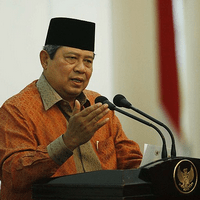DENPASAR, Indonesia -- Since the ouster in 1998 of the Suharto regime, Indonesia's process of democratization has made remarkable progress. The peaceful re-election of President Susilo Bambang Yudhoyono this year for a second five-year term served as the latest chapter, adding yet another layer of political stability to the country's democratic advances.
However, an extraordinary saga that sees the country's independent anti-corruption commission (KPK) locked in a battle for survival against the police and the Attorney General's Office (AGO) is an indicator of some of the difficulties the country still faces in its quest to grow into a mature democracy. The battle is highly significant for both Indonesia and Yudhoyono, for whom it could very well be a legacy-defining moment.
Established in 2002, the KPK really acquired some bite in 2004, when Yudhoyono rose to power on an anti-graft platform. Granted investigative powers and its own tribunal, the agency went on to convict dozens of parliamentarians and erstwhile untouchables, including a former national police chief, an influential prosecutor, and several former Bank of Indonesia senior executives (among them a relative of the president).

